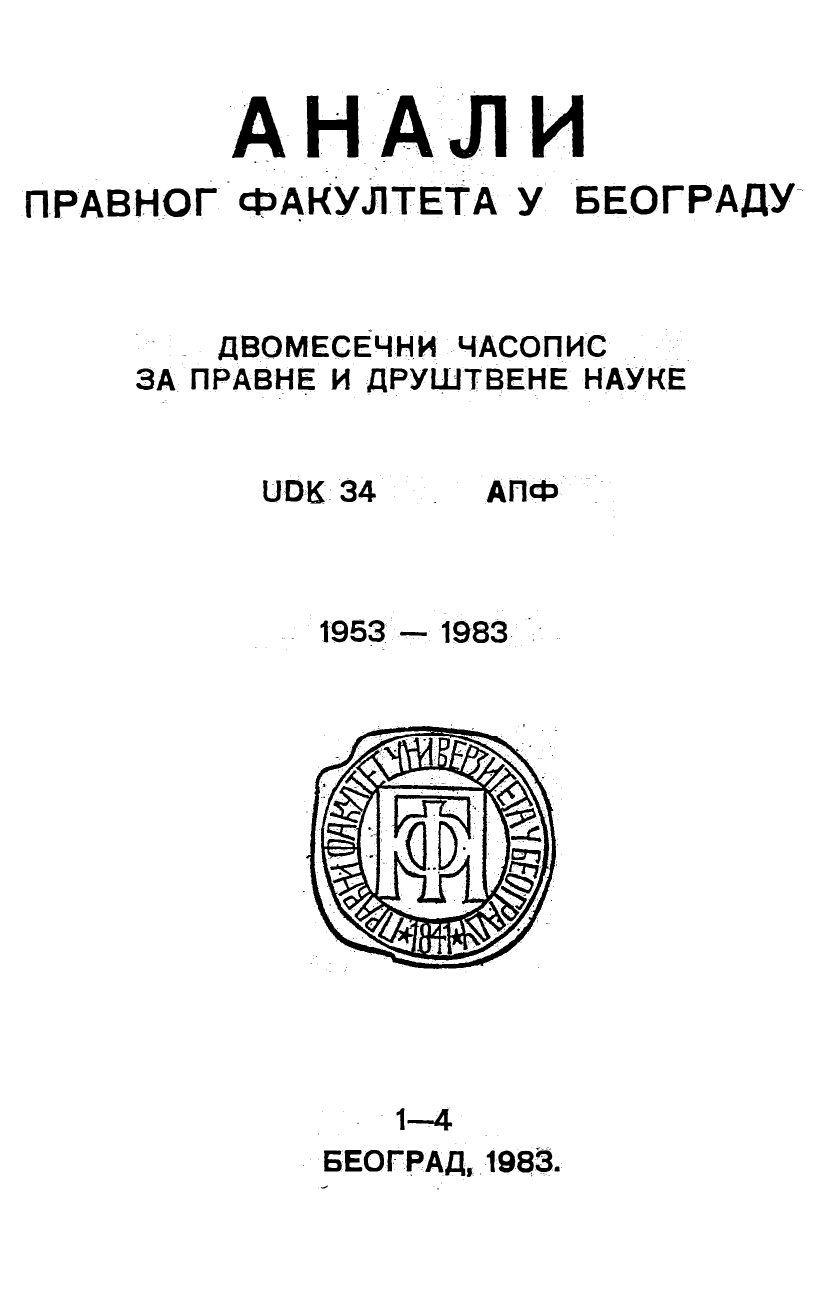ОДЈЕЦИ ТРАДИЦИЈА И ИНОВАЦИЈА ПРВОГ СРПСКОГ УCTAHKA У РЕВОЛУЦИОНАРНИМ ПОКРЕТИМА СРБИЈЕ XIX ВЕКА
ECHOING TRADITIONS AND INNOVATIONS OF THE FIRST SERBIAN UPRISING IN THE REVOLUTIONARУ MOVEMENTS IN SERBIA IN THE NINETEENTH CENTURY
Author(s): Ružica GuzinaSubject(s): History, Military history, Modern Age, 19th Century
Published by: Правни факултет Универзитета у Београду
Summary/Abstract: The Serbian Uprisings of 1804 to 1815 against the Turks and the National Liberation War from 1941 to 1945, as well as the socialist movement during the seventh decade of the nineteenth century, may be considered as revolutionary movements in Serbia during the nineteenth and twentieth centuries, with a particular place and role, and a special historical perspective. Furthermore, the following liberation wars, internal revolts and rebellions and „coups” will themselves contribute to the accelerated development of the Serbian society, the directions of which having been set by the First Serbian Uprising. In all these movements, the „echoing traditions and innovations” have been present, diverse, and also with different implementation and effect in the masses. For example, historicizm is prevalent in the First Uprising. The old state independence and the emperial myth have played a significant role in the struggle of the Serbian people for liberation from Turkish rule. But, as soon as the Uprising began, there was a differentiation between the leadership and the people in regard to the reliance on tradition in the process of establishment of the national state. The people demanded the implementation of a self-government principle of organization of areas and districts inherited from the „Turkish times”, while the leadership even used the eudap symbols of the Nemanich state in order to assert the authority of the new rule. However, during the nineteenth century the people will adhere to their own conception of democratic order of the Serbian state, which will find its/ expression in rebellion and dynasic coups. These aspirations of the people will be supported by the socialists, headed by Svetozar Marković, formulating them in a program of self-'government organization of the state. And so, instead of the historicizm and rnyth about „KraIjevich Marko” i.e. „the ideal of equity of the Serbian (feudal) lords and the Emperor’s vassal from the fourteenth century”, they will proclaim the principle o nationality together with a complete transformation of the Serbian society on democratic principles. The ideals o the^ socialist of all our peoples have come to fulfilment in the National Liberation War of 1941—1945, and consequently the establishment o the Yugoslav socialist state on a self-government basis.
Journal: Анали Правног факултета у Београду
- Issue Year: 31/1983
- Issue No: 1-4
- Page Range: 238-257
- Page Count: 20
- Language: Serbian

